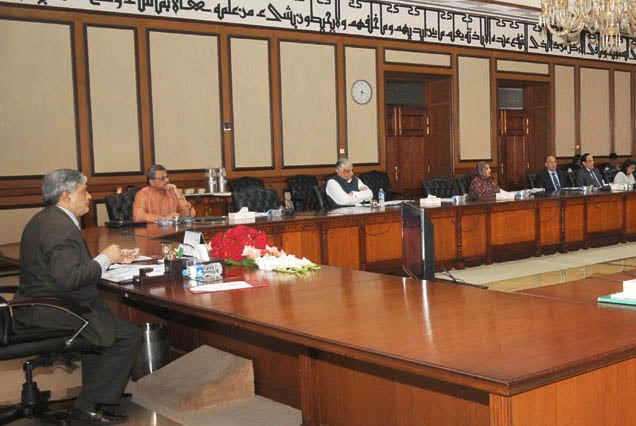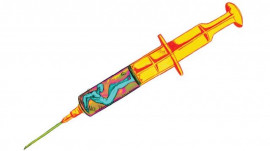
The money is intended for a comprehensive restructuring plan that that aims to revive the PSM by early next year and a privatisation process that will start in June 2015.
The plan has been prepared by the Privatisation Commission. It is to be completed before the entity is privatised next year.
The money will be disbursed in three tranches over the next six months to procure raw material for the PSM, which is currently at standstill. It will help the mill run at a capacity. The move is aimed at boosting the price of the mill before it goes under the hammer.
Spelling out the restructuring plan, the privatisation commission chairman said that Rs12.5 billion out of Rs18.5 billion will be released immediately. Of this Rs9 billion will be used for the purchase of raw material, while Rs3 billion will be paid to National Bank of Pakistan for an additional Letter of Credit facility to purchase raw materials. The aim is to to achieve the production capacity of 30 per cent by August this year.
Privatisation Commission chief Muhammad Zubair said the cash-flow plan for PSM will be prepared next week in consultation with Ministry of Finance.
Zubair said the strategy adopted over the past year was no longer feasible to improve PSM's situation.
Currently the PSM plant is running between three to six per cent of its installed capacity because sufficient raw material is not available owing to shortage of funds.
A second tranche of Rs3 billion will be released in mid-September, provided PSM achieves its initial goals. Out of this, Rs1 billion will be for enhancement of LC facility, which would help PSM in achieving 60 per cent production capacity by November 2014.
In mid-December, after a second performance evaluation, the third tranche of Rs3 billion will be released. Out of this, Rs2 billion will be used for enhancement of LC facility.
Zubair outlined that at the end of the restructuring, the PSM should be able to achieve 77 per cent production capacity and turn a profit of Rs230 million from January 2015 to June 2015.
The privatisation commission chairman said that from June 2015 onwards, the PSM will be able to pick its non-salary expenses and by that time the government would be in a position to start its privatisation process.
25 % regulatory duty on export of potato
The ECC on the recommendation of Minister for National Food Security and Research, Sikandar Hayat Bosan, decided to impose 25 per cent regulatory duty on export of potato with effect from May 5, 2014.
The decision was taken after the meeting was informed that hoarding and profiteering has led to increase of potato price locally. It was revealed before the meeting that the rational price for potato should be in the range of Rs.30 per kg.
Speaking at the occasion Finance Minister Ishaq Dar said that the government had given three days to the hoarders and middlemen to release the supply of potato in the market but it seems that the government will need to take appropriate measures to stabilise the prices.
It was further decided that there will be zero duty and levy on import of potato from May 5 till July 31, 2014 in order to bring potato prices at rational level in the market before and during the month of Ramadan 2014.
26,000 metric tons of wheat donated to WFP
The ECC also approved the summary of Ministry of National Food Security and Research for donation of 26,000 metric tons of wheat to WFP for internally displaced people (IDPs) of Federally Administered Tribal Areas (FATA) and Khyber-Pakhtunkhwa (K-P).
This will be a gift from the government of Pakistan to the IDPs to be distributed through WFP.
The federal government will pay Rs832 million for the wheat.
Utility Stores to procure sugar directly from mills
The meeting also approved in principle a summary of the Ministry of Industry and Production that would allow Utility Stores Corporation (USC) to procure sugar directly from the domestic sugar mills without the involvement of the Trading Corporation of Pakistan (TCP).
The ministry of finance will provide credit line support to the USC.
The body also directed TCP was directed to maintain their stocks of sugar upto 50,000 tons in future and to supply their over and above stocks to the USC from the current inventory of around 200,000 tons.

1731476617-0/Sandra-Oh-(2)1731476617-0-165x106.webp)















COMMENTS
Comments are moderated and generally will be posted if they are on-topic and not abusive.
For more information, please see our Comments FAQ